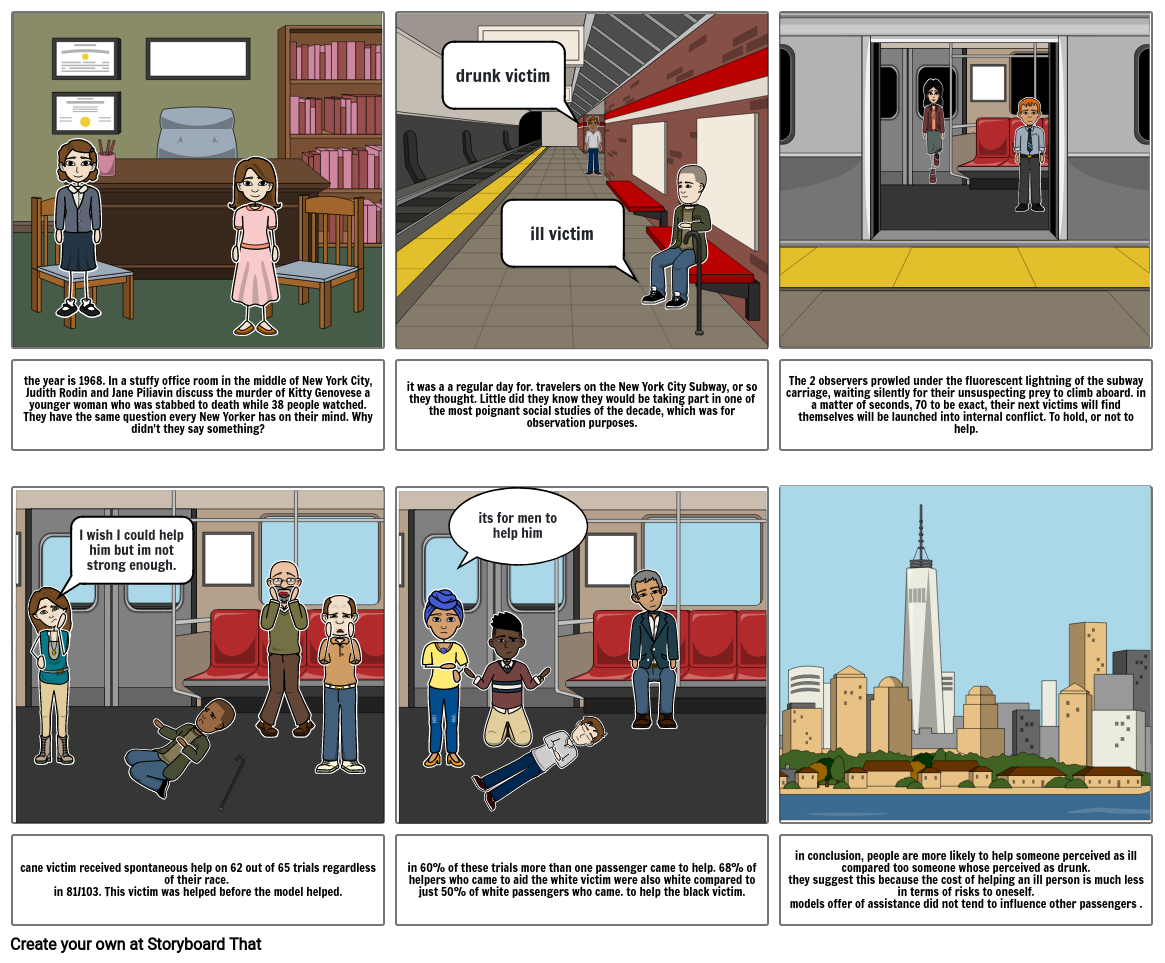storyboard

Storyboard Text
- drunk victim
- ill victim
- the year is 1968. In a stuffy office room in the middle of New York City, Judith Rodin and Jane Piliavin discuss the murder of Kitty Genovese a younger woman who was stabbed to death while 38 people watched. They have the same question every New Yorker has on their mind. Why didn't they say something?
- I wish I could help him but im not strong enough.
- it was a a regular day for. travelers on the New York City Subway, or so they thought. Little did they know they would be taking part in one of the most poignant social studies of the decade, which was for observation purposes.
- its for men to help him
- The 2 observers prowled under the fluorescent lightning of the subway carriage, waiting silently for their unsuspecting prey to climb aboard. in a matter of seconds, 70 to be exact, their next victims will find themselves will be launched into internal conflict. To hold, or not to help.
- cane victim received spontaneous help on 62 out of 65 trials regardless of their race. in 81/103. This victim was helped before the model helped.
- in 60% of these trials more than one passenger came to help. 68% of helpers who came to aid the white victim were also white compared to just 50% of white passengers who came. to help the black victim.
- in conclusion, people are more likely to help someone perceived as ill compared too someone whose perceived as drunk.they suggest this because the cost of helping an ill person is much less in terms of risks to oneself.models offer of assistance did not tend to influence other passengers .
Over 30 Million Storyboards Created

